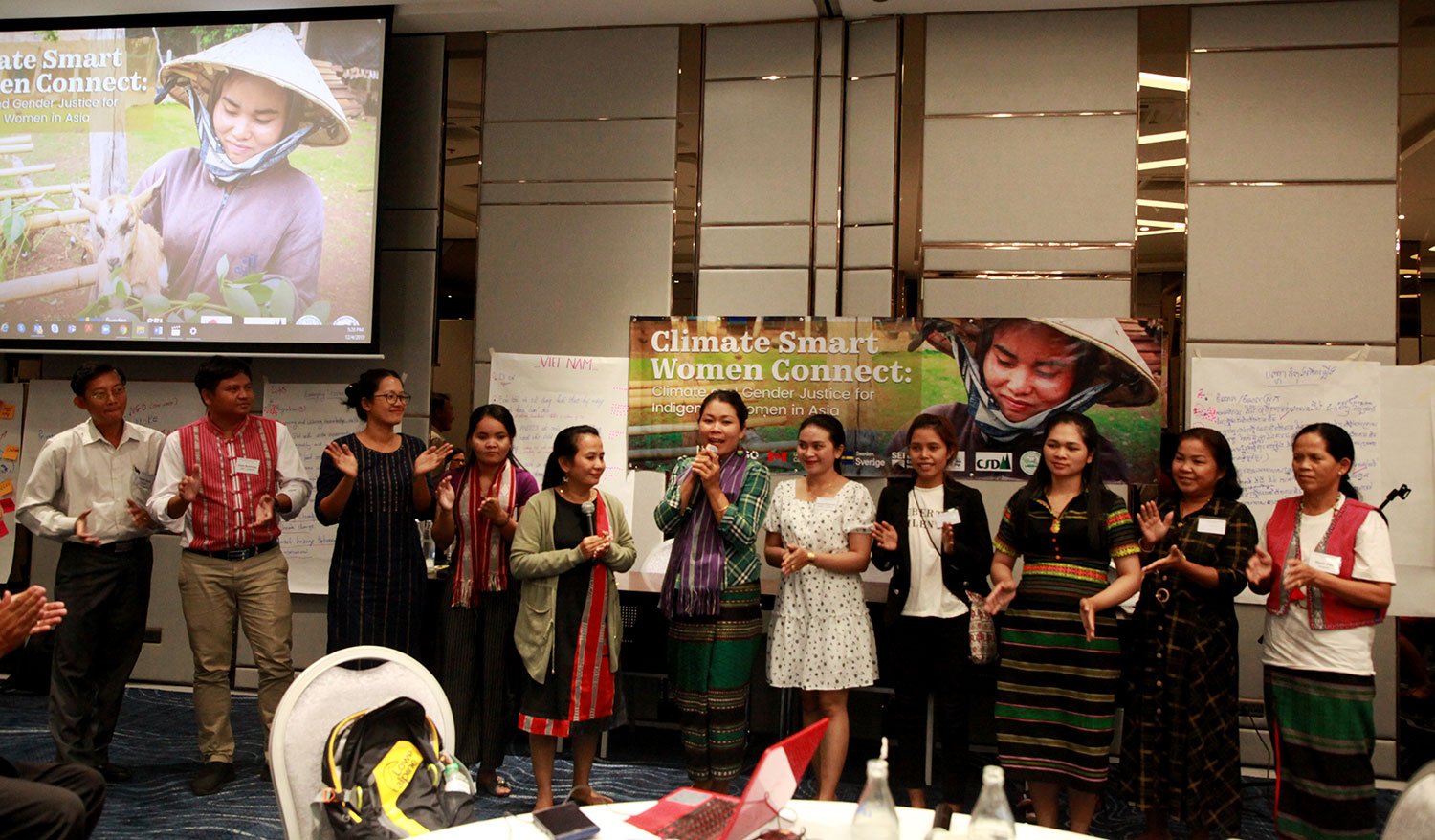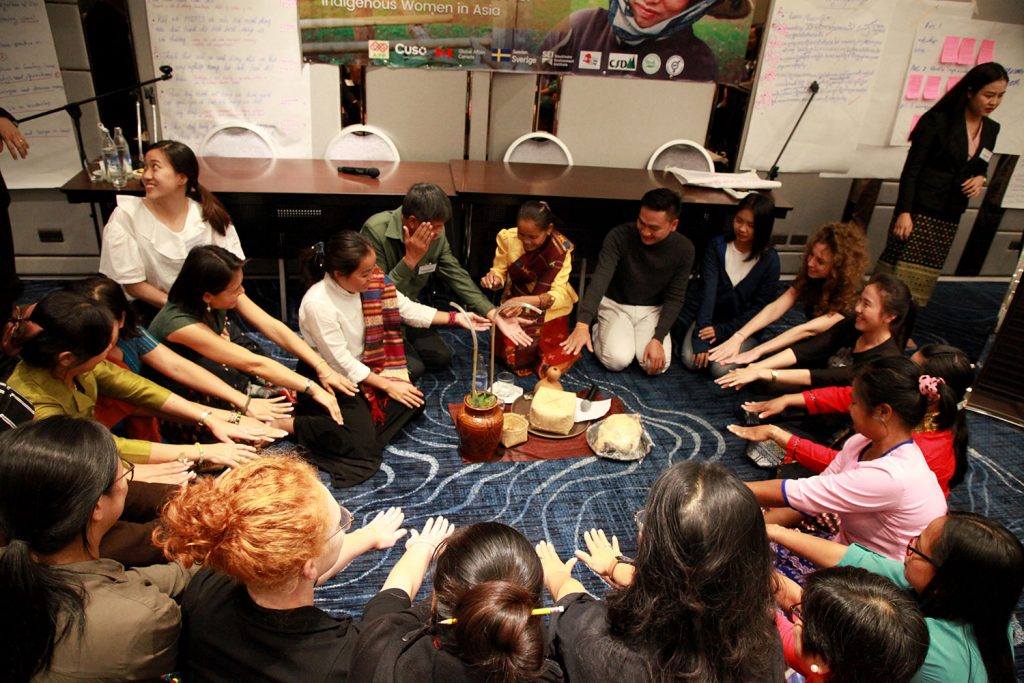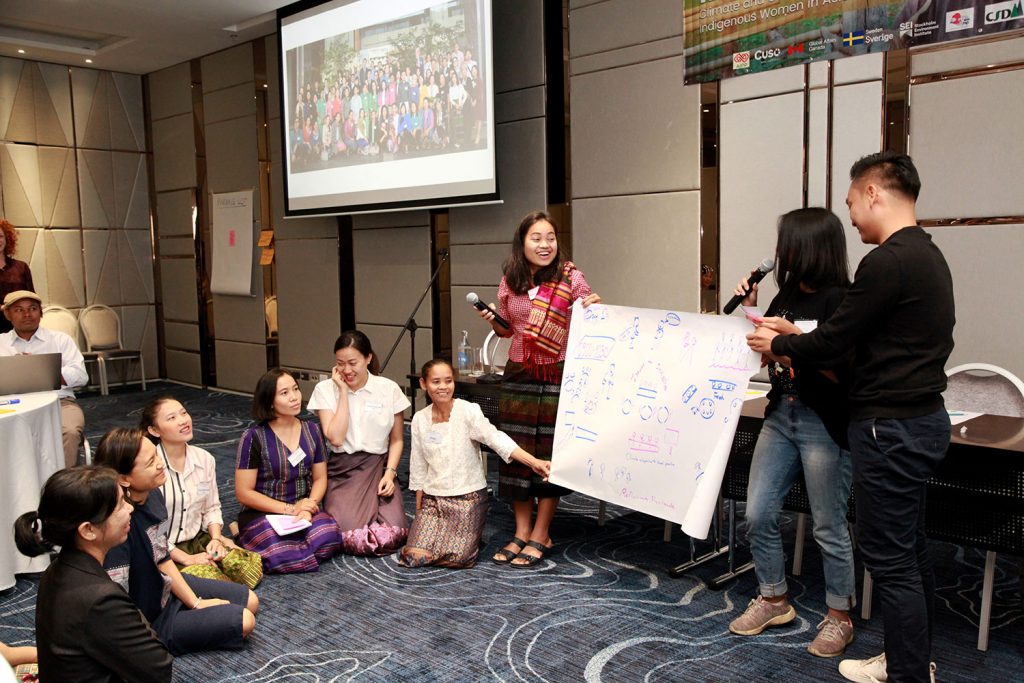Groups, SouthEast Asian Indigenous Women leaders to COP 25 delegates: Stronger climate adaptation support now!
News


Bangkok, Thailand (December 11, 2019) – More than 60 representatives from Indigenous Women’s Organizations and Networks from Southeast Asia called on world leaders currently gathered in Madrid, Spain for the last three days of the United Nations Framework Convention on Climate Change 25th Conference of the Parties (UNFCCC COP 25) to recognize the importance of working with Indigenous Peoples particularly Indigenous Women and their Indigenous Knowledge in mitigating and adapting to climate change.
In a three-day conference entitled “Climate Smart Women Connect: Climate and Gender Justice for Indigenous Women in Asia” jointly organized by the Asian Indigenous Peoples Pact (AIPP) and Cuso International in Asia, Indigenous Women leaders from Laos, Cambodia, Myanmar, Vietnam and the Philippines gathered to consolidate their voices, express solidarity with the Indigenous Peoples’ representatives, and influence the ongoing discussions in COP 25.
 “Indigenous Women like me are doubly experiencing the impacts of climate change through rising temperature levels which makes food production like farming and forestry harder for us,” shared Daw Nyo Nyo San, an Indigenous Woman leader from Myanmar.
“Indigenous Women like me are doubly experiencing the impacts of climate change through rising temperature levels which makes food production like farming and forestry harder for us,” shared Daw Nyo Nyo San, an Indigenous Woman leader from Myanmar.
Honkeo, an Indigenous Woman herself and the Field Coordinator of Laos-based grassroots organization Global Association of People and Environment (GAPE), has this message to world leaders attending COP 25: “Women, especially Indigenous Women, must play a main role in discussing climate challenges and solutions.” Ei Ei Min, Director of POINT Myanmar and a member of AIPP’s regional network is participating in COP 25, in an effort to include the voices of Indigenous Women in the climate discussions.
According to the Food & Agriculture Organization (FAO), women are responsible for half of the world’s food production. In most Global South countries, women produce between 40-80% of food, and are central stewards of seeds and agricultural biodiversity. Further, 80% of the remaining global biodiversity is within the lands of Indigenous Peoples who have protected them over generations.
Sushila Kumari Thapa Magar of the AIPP said: “Due to their close relationship with the land and natural resources, Indigenous Women hold unique and invaluable Traditional Ecological Knowledge, as well as spiritual and cultural understandings critical to healing and maintenance of the Earth and climate cycles. However, the increasing frequency and devastating effects of extreme weather events are disproportionately affecting Indigenous Peoples especially Indigenous Women and people of diverse identities in Asia. The impacts of climate change are most severely felt around agriculture and food security as they directly bear on livelihoods,” she added.
 Jonathan Burton, Head of Programmes for Cuso International Asia said: “Indigenous Women are at the forefront of local and global efforts to protect and defend these territories of immense socio-ecological diversity – taking action on the frontline of grassroots movements and struggles. Indeed, state delegates attending COP 25 must recognize the impacts of climate change on Indigenous Women and their role as knowledge holders in adapting to its impacts. Clearly, facilitating the flow of climate adaptation resources to them should be a priority.”
Jonathan Burton, Head of Programmes for Cuso International Asia said: “Indigenous Women are at the forefront of local and global efforts to protect and defend these territories of immense socio-ecological diversity – taking action on the frontline of grassroots movements and struggles. Indeed, state delegates attending COP 25 must recognize the impacts of climate change on Indigenous Women and their role as knowledge holders in adapting to its impacts. Clearly, facilitating the flow of climate adaptation resources to them should be a priority.”
The conference concluded with the drafting of a common message realizing the structural barriers of Indigenous Women to effectively contribute in adapting and mitigating the climate crisis, and collectively recommended and called for immediate actions for climate and gender justice.
Notes to Editors:
The Paris Agreement on Climate Change (UNFCCC COP 21) has recognized the importance of working with Indigenous Peoples in adapting and mitigating the effects of climate change through the use of traditional knowledge. In the UNFCCC COP 23 held in Bonn in 2017, Parties adopted the Gender Action Plan (GAP) to support the implementation of gender-related decisions and mandates under the UNFCCC process.
Contact:
Jed Alegado
Communications Consultant for Climate Smart Women Connect
jed.alegado@gmail.com
+639176070248
About Cuso International
Cuso International is a non-profit development organization that works to reduce poverty and inequity through the efforts of highly skilled volunteers, collaborative partnerships and compassionate donors. Established in 1961, Cuso International is a registered charity in Canada and the United States. Funds raised have enabled more than 15,000 volunteer placements around the world.
About AIPP
Asia Indigenous Peoples Pact is a regional organization founded in 1988 by indigenous peoples’ movements. AIPP has 48 members from 14 countries in Asia. AIPP is committed to the cause of promoting and defending indigenous peoples’ rights and human rights and articulating issues of relevance to indigenous peoples.